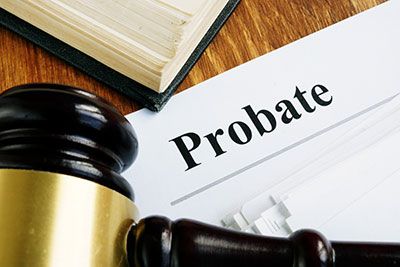Many individuals with modest estates fail to create an estate plan, causing their families stress and anxiety at the time of their incapacity or death. By taking advantage of simple estate planning, you can find thoughtful solutions to prevent burdens from being placed on family members.
John had a modest estate - a house with a mortgage, a small life insurance policy and a checking account. He was in his 80s and knew that he had to plan for the future when he would no longer be around. So, John did what many people with small estates do: He told his son that he would be in charge if something were to happen to him.
Without significant wealth, John did not believe that he needed to create an estate plan. He failed to recognize that this oversight would cause his son considerable stress because without utilizing estate planning tools, the law would not recognize the power he had given his son.
Many individuals with modest estates fall into this same trap. But estate planning is not just for the wealthy. By engaging in thoughtful estate planning, no matter your wealth, you can reduce the stress on your family. Among other benefits, estate planning allows you to:
- Minimize the time and expense spent probating your estate.
- Protect your assets from creditors.
- Give another individual the legal authority to make health care and financial decisions on your behalf.
- Make funeral arrangements.
- Reduce fights between friends and family members.
How can estate planning minimize the time and expense of probate?
Planning ahead to avoid probate can save your family significant time and expense after your death. Probate is the court process through which your property is distributed after your death. It can be time-consuming and costly with court fees, attorneys' fees and publication costs. However, through careful estate planning, you can avoid probate and ensure a speedy and less costly transfer of your assets.
Steps that you can take to avoid probate include:
- Updating beneficiary designations on retirement accounts and life insurance policies.
- Adding a joint owner with rights of survivorship to bank accounts, investment accounts and deeds to real estate.
- Creating a trust.
Which options will work for you depend on your specific family and financial situation.

How can estate planning protect your assets from creditors?
Especially if you are not leaving a significant amount of wealth, you should take estate planning steps to ensure that your assets do not end up in the hands of creditors. Beneficiaries who own a sole-proprietorship business, are heading toward divorce or are financially irresponsible are at a particularly high risk of losing assets to creditors.
A spendthrift trust is one smart option you can use to protect your assets. A spendthrift trust puts a limit on the extent to which the beneficiary can access and control the wealth contained in the trust. The beneficiary has no right to all the assets in the trust and cannot spend any of it before the property is distributed. Therefore, creditors can only reach property that the beneficiary has actually received, not the inheritance that remains in the trust.
Additionally, if you are married and own real estate, you should consider titling the property with your spouse as tenants by the entirety. This can protect the property from your individual creditors. Except for the IRS, your creditors will not be able to place a lien on the property. However, creditors of your spouse will be able to access the property.
How can estate planning give another legal power to make financial and health care decisions?
In general, a family member will not automatically have the legal authority to make health care and financial decisions on your behalf if you become incapacitated. But through durable powers of attorney, you can give another the ability to legally act on your behalf, without making them go through the time and expense of asking the court for authority.

A health care power of attorney allows you to designate an individual to make health care decisions on your behalf when you no longer have the capacity to do so yourself. In the document, you can provide clear instructions on where you want to live and what medical treatment you wish to receive, so the pressure to make these decisions doesn't fall entirely on the shoulders of your loved ones.
A financial power of attorney allows you to designate an individual to manage your finances during your incapacity. For example, your agent could access your assets to pay for everyday expenses for yourself and your family, buy and sell real estate, and file and pay your taxes.
If you fail to create powers of attorney, someone will need to get a court-ordered guardianship or conservatorship. This process will take time and can be costly, creating additional stress for your family.
How can you use estate planning to make funeral arrangements?
Through estate planning documents, like a last will and testament or trust, you can plan for your funeral arrangements. Among other details, you can provide instructions on:
- Whether you want a funeral or memorial service.
- How the funeral should be paid for.
- If you wish to be buried or cremated.
- Where the services should be held.
Planning ahead saves your family from having to make these difficult decisions on their own and allows them to focus on grieving.
How can estate planning reduce fighting between family members?
When you fail to plan, decisions will have to be made between your family members. Conflicts can arise among family members who disagree over what you would have wanted. We have all heard horror stories of families being torn apart over inheritances. Even if you are leaving a modest estate behind, there can be tension over what medical treatment you should receive or your funeral arrangements. By engaging in thoughtful estate planning now, you can encourage family harmony later.



